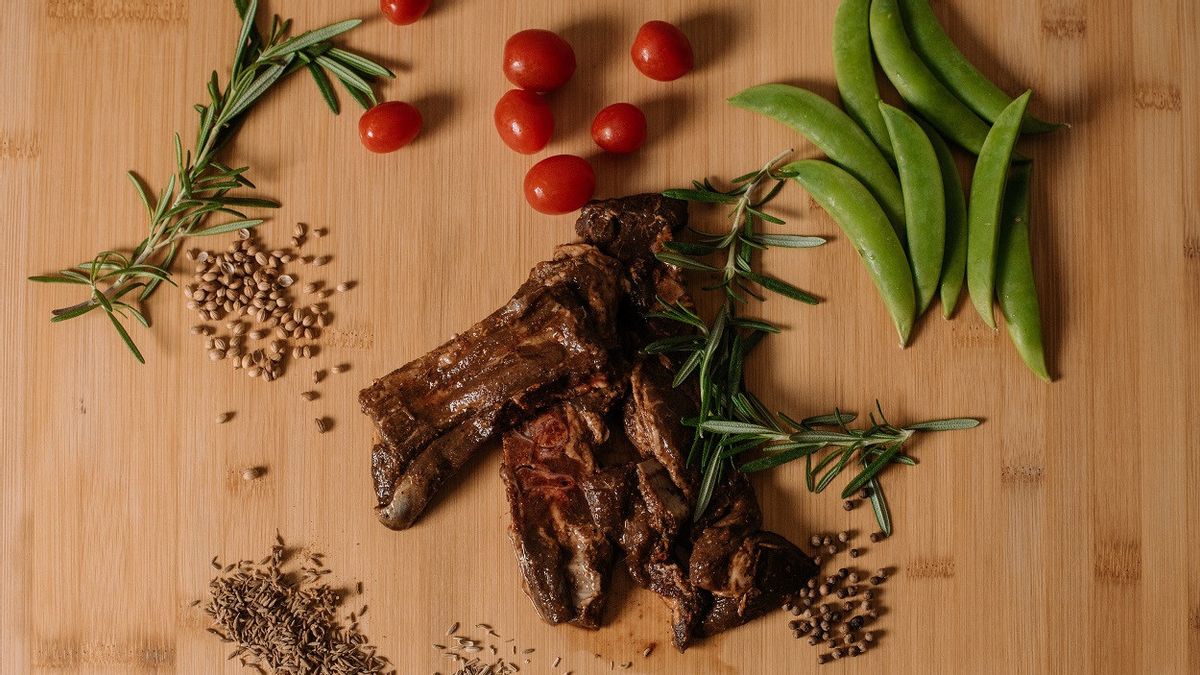JAKARTA - Fat acids found in beef, sheep and dairy products increase the immune system's ability to fight cancer cells, the researchers found.
A study published in the journal Nature found that trans-vacnic acid (TVA) could disable receptors involved in regulating the immune response, changing the way the immune system acts against cancer cells.
The team led by Dr. Jing Chen, Professor of Medicine Janet Davison Rowley Distinguished Service at the University of Chicago, focuses on the effect of TVA on immune cells.
Previous research has linked the high consumption of red meat and processed meat to an increased risk of certain types of cancer, especially colorectal cancer.
However, the researchers warned against increasing consumption of red meat and milk. On the other hand, the focus must be on the nutrition itself, perhaps in the form of supplements.
"The results of our study show that eating a balanced diet may be good for health," said Dr. Chen quoted from The National News December 15.
Speaking to The National, Dr Chen said the research showed for the first time that TVA could turn off specific receptors (GPR43) on the surface of cells.
He explained, this receptor usually responds to certain substances produced by bacteria in the human intestines. By deactivating this receptor, TVA can change the way the immune system works so that it can help fight cancer.
"There is a lot of research trying to outline the relationship between diet and human health. Focusing on nutrients that can activate T-cell responses, we found nutrients that actually increase anti- tumour immunity," explains Dr. Chen.
Dr. Chen's laboratory, along with his postdoctoral counterpart Hao Fan and Siyuan Xia, who was the first author of the study, began by analyzing about 700 food-derived metabolites, the small molecules produced from food processing by the body.
Their research focused on 235 bioactive molecules, which eventually identified TVA as the main candidate for boosting anti- tumour immunity.
TVA, which cannot be produced by the body and is found in breast milk, is largely still not split in blood flow.
"That means there must be other things he can do, so we started working on it further," added Dr. Chen.
Subsequent experiments with cell and mouse models showed TVA-enriched diets significantly reduced tumor growth in melanoma cells and colon cancer.
"As a natural food component, TVA has a high translation potential to be used as a food element or treatment supplement in a therapeutic approach to improve clinical results," he told The National.
"For example, a combination of TVA and inhibitors of immune examination posts can be tested to increase immunotherapy in treating cancer patients," he said.
Dr. Justin Kline, a medical oncologist at the University of Chicago, analyzes blood samples from patients undergoing CAR-T cell immunotherapy for lymphoma, noting higher TVA levels are associated with better treatment responses.
In addition, Prof. Wendy Stock, professor of medicine-hematology and oncology, has observed an increase in the effects of immunotherapy in herbal cells with TVA.
"There are still many things we don't know, for example a comprehensive understanding of the various physiological and pathological functions of each nutrition of different foods is still not available," said Dr. Chen.
"Focusing on nutrition bioactivity rather than individual foods may be more important, and taking supplements with enriched bioactive nutrients is likely to be more efficient than eating foods that contain these nutrients."
Dr. Chen also hinted at the possibility of similar benefits from fatty acids originating from plants.
SEE ALSO:
Research, including large-scale epidemiological studies, often shows the high consumption of processed meat (such as sausages) and red meat (such as beef and sheep) is associated with an increased risk of certain types of cancer, especially colorectal cancer.
It is known, the World Health Organization (WHO) classifies red meat as carcinogen Group 2A, which suggests that red meat may be carcinogenic for humans.
This classification is based on evidence that suggests this meat can cause DNA damage and increase the risk of cancer, which may be caused by substances formed during processing or cooking at high temperatures. There is also some evidence that high consumption of meat can affect intestinal bacteria so as to contribute to the risk of cancer.
The English, Chinese, Japanese, Arabic, and French versions are automatically generated by the AI. So there may still be inaccuracies in translating, please always see Indonesian as our main language. (system supported by DigitalSiber.id)


















